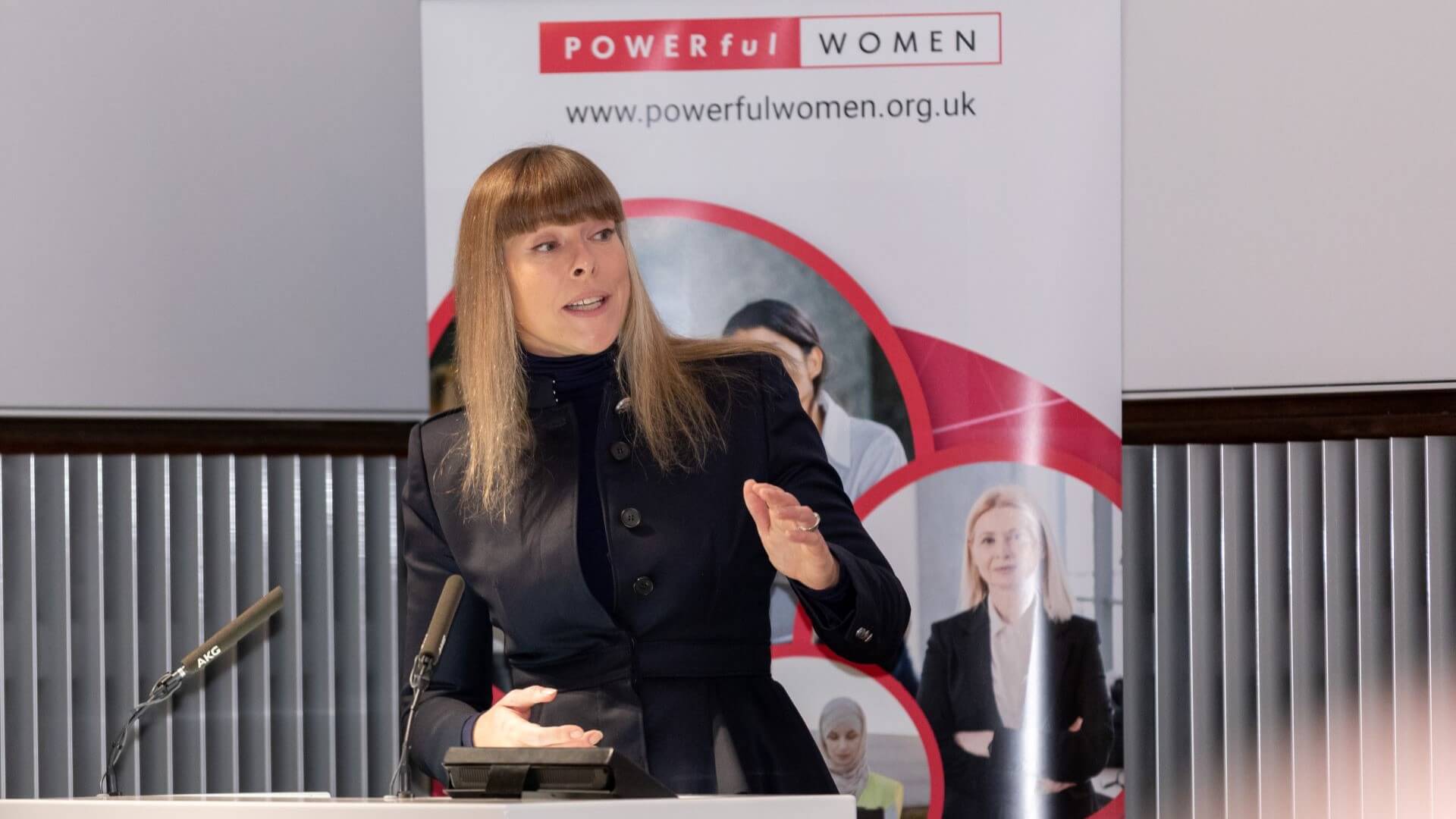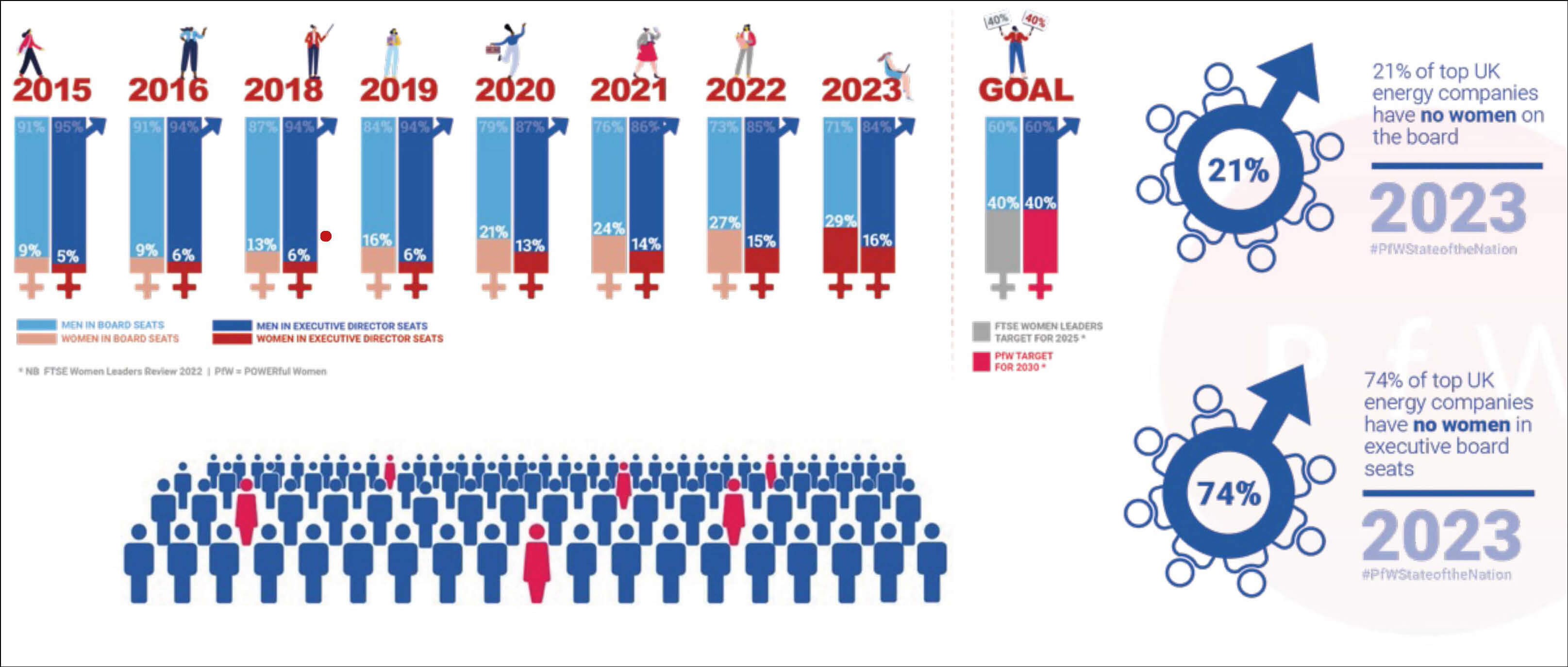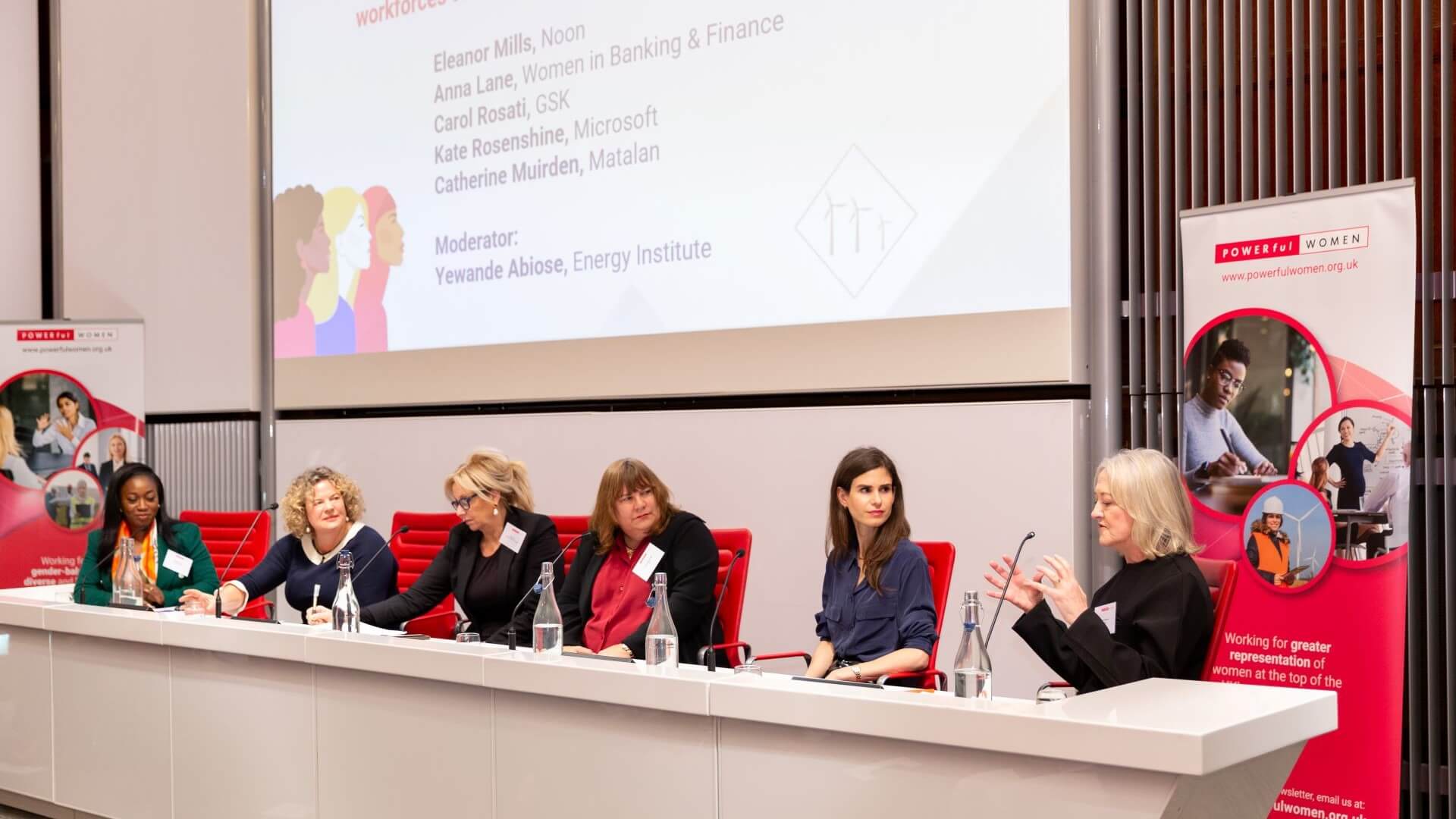UPDATED 1 Sept: The EI library in London is temporarily closed to the public, as a precautionary measure in light of the ongoing COVID-19 situation. The Knowledge Service will still be answering email queries via email , or via live chats during working hours (09:15-17:00 GMT). Our e-library is always open for members here: eLibrary , for full-text access to over 200 e-books and millions of articles. Thank you for your patience.
New Energy World™
New Energy World™ embraces the whole energy industry as it connects and converges to address the decarbonisation challenge. It covers progress being made across the industry, from the dynamics under way to reduce emissions in oil and gas, through improvements to the efficiency of energy conversion and use, to cutting-edge initiatives in renewable and low-carbon technologies.
Women still have uphill fight for equality in energy companies
22/11/2023
News
Over 200 high-powered women, and 20 (hopefully more aware) men, thronged the exhilarating POWERful Women (PfW) conference in London last week, as well as 600 registered online. The conference featured the launch of the Energy Leaders’ Coalition Annual Report, words of encouragement by Rt Hon Amanda Solloway MP, Minister for Energy Consumers and Affordability, and a host of inspirational comment by women executives from across the energy spectrum, writes Brian Davis, New Energy World Features Editor.
The Energy Leader’s Coalition (ELC) brings together 16 energy company leaders representing nearly two-thirds of the UK energy workforce, alongside the CEOs of Ofgem and the North Sea Transition Authority (NSTA) working together to drive better diversity, equality and inclusion (DEI).
Its fifth annual report has seen a raft of new and improved company initiatives designed to attract, develop and retain female talent. Key initiatives include the establishment of an Executive Committee to accelerate D&I ‘from the top’; the launch of new DEI initiatives; the introduction of equal parent leave and improvements to paid partner and family leave; and tools to address bias in recruitment.
Highlights of the year included a first-of-its-kind joint marketing campaign titled ‘Empower Her in Energy’, to attract young women into the UK energy sector ‘as an exciting place to work’. The campaign was shortlisted for the UK Social Media Awards. And a detailed progress review in the Annual Report addresses the particular barriers faced by women in middle management.
Given the express PfW target of 40% of middle management and leadership roles in the UK energy sector to be held by women by 2030, today 10 of the 16 companies have achieved this goal, according to the Annual Report; five have reached 50:50 gender parity on their boards; and three have met PfW’s 2030 target for 40% women in leadership.
‘The ELC provides a unique safe space for energy CEOs to share, learn and challenge each other on what works and what doesn’t when it comes to accelerating diversity and inclusion,’ said Chris O’Shea, Group Chief Executive of Centrica and this year’s Chair of the ELC. He noted the launch of the joint marketing to attract young women into the industry ‘which will expand next year’, supported by a raft of very exciting company initiatives mentioned in the report that he believes ‘will make a real difference’.

Katie Jackson, Chair of PfW
Kicking off the conference, Katie Jackson, Chair of PfW, emphasised that ‘currently UK energy boards remain male dominated’ (see Fig 1). In 2023, there were only 16% of women in energy board seats, a mere 1% increase on 2022 (15%) although well up on 6% in 2019. Meanwhile, 21% of top UK energy companies have no women, and 74% of top UK energy companies have no women in executive board seats.
Generally, women make up 31% of leadership roles in the UK energy sector and 32% of middle management.
By contrast, women comprise 40% of FTSE 350 boards, compared to 29% in energy boards. Moreover, the energy sector comes almost bottom of the industry and business sectors league, third only to construction and mining.

Fig 1: UK energy boards remain male dominated
Source: PfW
There was a fascinating session on what the energy industry could learn from other sectors like retail (Matalan), pharmaceuticals (GSK), high tech (Microsoft) and Banking & Finance.
But the most thought-provoking speaker proved to be Eleanor Mills, founder of Noon and former Editorial Director of The Sunday Times, who introduced those attending to the oft-overlooked potential of so-called ‘Queenagers’ – a pioneering generation of women between 45 and 65, who often feel over-looked despite 90% earning over £40,000 a year and making 93% of all purchases in households; with a wealth of experience, which is often lost in a ‘Queenager brain-drain’ just when they could contribute so much. Mills insisted: ‘It’s about changing the system to create cultures where women can function better, flourish and most importantly remain.’
Indeed, Mills stressed: ‘If companies continue to lose women at this life stage and leadership levels, they risk losing not only their current female leaders but also the next generation of female talent.’

PfW panel on ‘How other sectors support diversity’– (left to right) Yewande Abiose, Head of Strategic Partnerships, Energy Institute; Eleanor Mills, Founder, Noon; Anna Lane, President and CEO, Women in Banking & Finance; Carol Rosati OBE, UK DEI Lead, GSK; Kate Rosenshine, Director – WW Technical Specialist Team, Microsoft; and Catherine Muirden, Chief People Officer, Matalan
Finally, on a personal note, even as a male ‘dinosaur’ reporter, I found this PfW conference totally exhilarating. There was plenty for everybody to learn at all levels of the business, and I would encourage readers of any persuasion to register for tickets next year.
